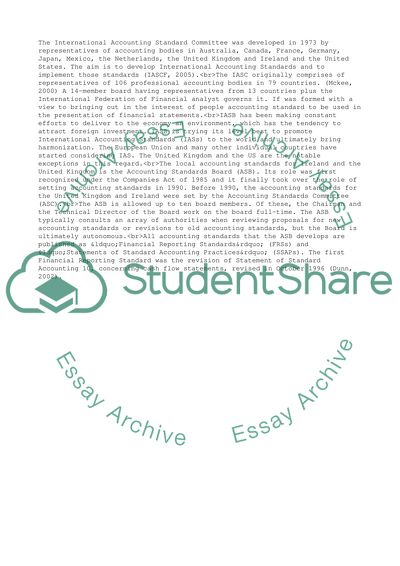Cite this document
(“The Harmonisation of International Reporting Standards Essay”, n.d.)
Retrieved from https://studentshare.org/business/1522067-revision-the-harmonisation-of-international-reporting-standards
Retrieved from https://studentshare.org/business/1522067-revision-the-harmonisation-of-international-reporting-standards
(The Harmonisation of International Reporting Standards Essay)
https://studentshare.org/business/1522067-revision-the-harmonisation-of-international-reporting-standards.
https://studentshare.org/business/1522067-revision-the-harmonisation-of-international-reporting-standards.
“The Harmonisation of International Reporting Standards Essay”, n.d. https://studentshare.org/business/1522067-revision-the-harmonisation-of-international-reporting-standards.


